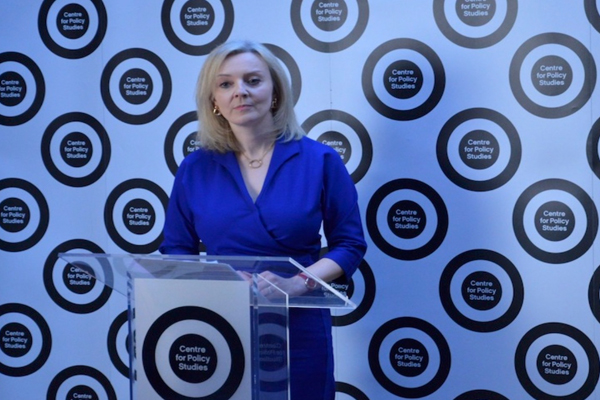The Minister for Women and Equalities, Liz Truss, has announced the launch of the Government’s new initiative to better understand the barriers faced by people from every background across the UK and tackle inequality.
The new Equality Data Programme is reported to be the Government’s “broadest and most comprehensive equality data project”. The programme is the result of the Government’s new approach to tackling inequality in the UK, outlined by Truss, in her Fight for Fairness speech, yesterday. The data will determine where inequality lies and where people are held back. It is expected to “get to the heart of the disparities that people are facing to ensure real inequalities are addressed, using more data than ever to ensure policies work”.
According to Truss, the current problem with equality in this country, is that “too often, the equality debate has been dominated by a small number of unrepresentative voices, and by those who believe people are defined by their protected characteristic and not by their individual character”.
NEW APPROACH TO EQUALITY
Her speech (see video below), marked a new approach to the Government’s equality policy, with a commitment to individual dignity and opportunity at its heart. This is a significant change from the Equality Hub’s past work, which often focused on people with a single protected characteristic and compared outcomes narrowly within those groups. “Underlying this [approach] is the soft bigotry of low expectations, where people from certain backgrounds are never expected or considered able enough to reach high standards. This diminishes individual humanity and dignity. Because when you choose on the basis of protected characteristics, you end up excluding people,” explained Truss.

By considering a wide range of issues, such as geography and social background, the Equality Data Programme will deliver on a manifesto commitment to improve evidence on equality and to support levelling up ambitions, confirmed Truss. The information gathered will be used to inform policy decisions across government, and will allow the Equality Hub to deliver on the public’s priorities.
FIGHT FOR FAIRNESS
“Just as our forebears fought for change, we must fight for change again – challenging whatever is unfair and unjust today. It is not right that sometimes having a particular surname or accent can make it harder for people to get a job. It is appalling that pregnant women suffer discrimination at work. Or that women may be encouraged to dress in a certain way to get ahead. Or that some employers overlook the capabilities of people with disabilities,” stressed Truss. “Now is the time to root the equality debate in the real concerns people face, delivering quality housing, cutting commute times, improving public transport, ending discrimination in our offices, factories and shop floors, and improving our schools so every child has the same chances in life. It is our duty to deliver, because if right-thinking people do not lead the fight for fairness, then it will be led by those whose ideas do not work.”
To further demonstrate the Government’s commitment to levelling up the whole country and listening to the voices of everyone in the UK, the Equality Hub will also relocate to the North of England. Existing data clearly shows a gap between London and the South East and the rest of the UK in things such as life expectancy, pay and GDP. “We will drive this action from the North of England, where we are moving the Equality Hub. And we will also take on the power of the Social Mobility Commission and give this agenda real teeth,” added Truss. She also promised a strong government-wide commitment to continue the Equality Hub’s work related to race and ethnic disparities, women’s economic empowerment, LGBT rights and the National Strategy for Disabled People.
TIME TO TACKLE INEQUALITIES ACROSS UK
“It is welcome news that the work of Equality Hub won’t be limited to individual protected characteristics, but rather take into account the needs of every part of society, levelling up the regions and empowering our youth, restoring dignity and offering the same opportunities to all, irrespective of their postcode, gender or heritage,” according to Robert Colvile, Director of the Centre for Policy Studies. “If the pandemic has shown us anything, it’s that there are still vast inequalities across the country which need to be addressed.”
Nancy Kelley, CEO of Stonewall, agrees: “Many people in the UK today, including LGBT+ people, still face huge inequalities and the Women’s and Equalities Minister must remain committed to tackling them.”
Data has continually shown that the more discrimination you face because of who you are, “the more inequality you will experience – including financial stability, employment, mental wellbeing and physical health, as well as access to opportunities”, pointed out Kelley. “While we welcome the Equality Data Programme and the continuation of the Equality Hub, it is vital that the Government provides reassurance that dedicated programmes of work, such as gender pay gap reporting and the LGBT Action Plan, which remain vital in tackling the inequalities highlighted today, will continue to be prioritised and developed.”








































